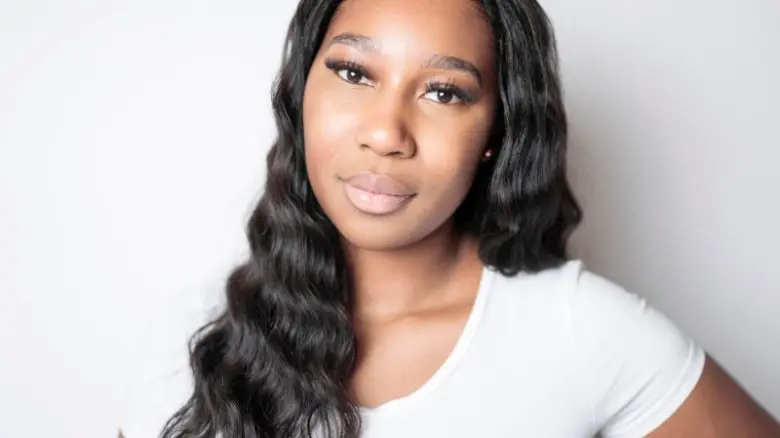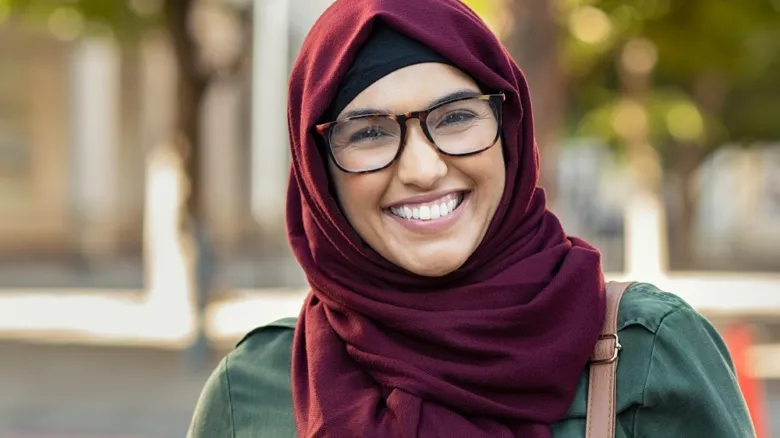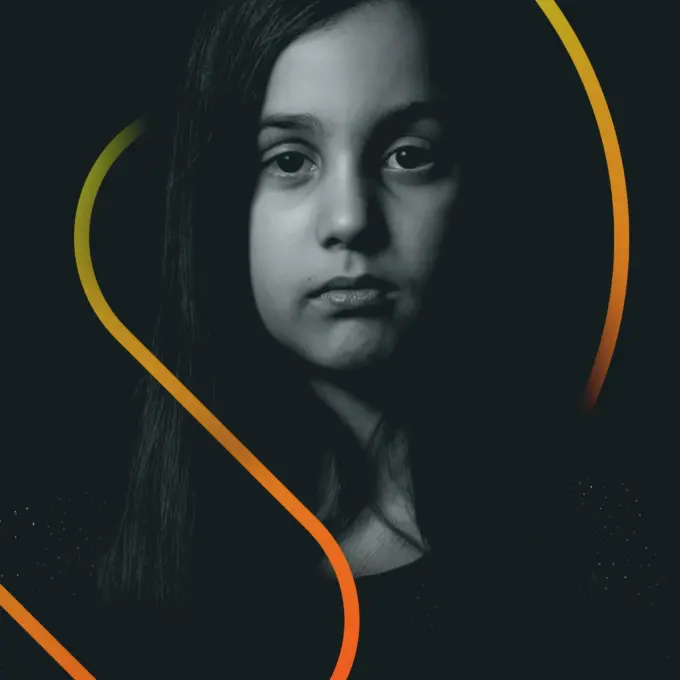
I always make sure to bring the focus back to the child.
Meet Melissa, Safer London’s young Londoners affected by Sexual Violence Expert Caseworker.
*Trigger Warning* Sexual violence, Sexual assault, Sexual abuse
Creating safe spaces for young Londoners to heal from their trauma is at the core of our approach. When working with young Londoners who’ve experienced sexual violence or assault, our Expert Caseworker Melissa’s top priority is to create a sense of safety, allowing them to freely express their needs and embark on a path towards a brighter future. Melissa achieves this by through trust and assuring these young Londoners that the blame does not rest with them and that things will get better.
I’m here to encourage and empower some of these girls to take back their power and regain some sense of control after what they’ve experienced.
What is the purpose and function of your role?
The service is for anyone, but I particularly work with girls and young women who have been victims of sexual violence, sexual assault, or abuse. I think it has come out of the fact that there’s such a high number of cases and support needed for victims and just not enough professionals to support them.
The main part of the role is to provide emotional and practical support for anyone who has experienced sexual violence or assault, whether recent or historic, as well as support them through the Criminal Justice System. I’m able to support young Londoners for up to two years. So that means I can support them through that process because it can be quite lengthy.
The support looks different over time. So initially I’ll be working with young Londoners on a weekly basis, going through the intervention and looking at all the different areas of support. Then it moves to more ad hoc support. The weekly sessions stop, and then support is as and when needed. So, I’ll support them through investigations, providing advocacy, and speaking with professionals.
What does a ‘typical’ average work week look like?
It depends. Some days I can have something in my diary, and that all changes. So, Monday was supposed to be an admin day, but I had three “Need to Knows” before 10 am. A “Need to Know” is when a safeguarding concern is such high risk, that it needs to be escalated to Safer London’s safeguarding leads for support. So, everything I had planned for that day went out the window because I spent the whole day dealing with safeguarding.
But typically, on Mondays, I try not to go out on sessions. I like to use Mondays to do admin. So, it usually starts off with checking emails, updating case files; there might be some meetings, that kind of thing. However, if a young person can only see me on a Monday, then I’ll make that happen.
When I’m going out on sessions, I take time to plan each session the day before, making sure I get their files together. So, I look at the action plan and what was discussed previously. I spend about an hour with each young person, and usually, I’ll liaise with the professionals in school before or after a session so I can get updates. I try and always type up case notes straight away. That just makes life easier for me.
During term times, I usually meet young people at school or college because it’s a safe space. The school or college will provide a meeting room for us where it’s private. I find you can get a little bit more done as far as any worksheets and having those real in-depth conversations. When term time is finished, we’ll meet in the community. I tend to prefer to meet them where they choose and somewhere that’s close to them and is a safe space. In the summer it’s nice because you can go and sit in a park, but we’ll also go to coffee shops and places like that.
I also attend a lot of professional meetings. So, whether that’s Child in Need or Child Protection meetings, I also arrange professional meetings when something happens between scheduled statutory meetings that need to be discussed.
At Safer London, we’ve got so many different elements of the service, such as housing and emotional well-being, so I’ll also spend time connecting with other people in the organisation to support my cases.

Why is this service so important for young Londoners?
My role is all about creating a safe space for girls and young women after they have experienced trauma. I think it’s important for them to have a dedicated space where they can be supported and guided, and for their feelings to be validated. Their innocence has been taken from them. I’m there to let them know that things can get better.
I also provide a holistic approach that addresses various aspects. So, we don’t just focus on one area, we look at multiple areas. This is because abuse and trauma impact many areas of your life. You need to look at all the aspects, as there are so many complex needs.
Young Londoners can also receive support without having made a report to the police. I think that’s really important, as sometimes some services will only work with victims if they’re going through an investigation. The Criminal Justice System is so complex. The proceedings are really lengthy. It can be really, really traumatising at times. I talk about that with the young Londoners I work with, and if they decide then to make a formal complaint, then that’s their choice and I can support them through that. But I think it’s good they can have the support without having to go through that process.
Another thing that is important to me is that we work within the principles of violence against women and girls. So, we introduce them to that topic and work to remove that victim-blaming and shame around experiencing sexual violence, assault, and abuse. We address stereotypes and gender roles, the oppression against women and explore feminist values. Not in a sense where it’s radical, just in a way to empower them as young women in society. I think it’s important because then we can empower and restore these young girls and women.
What’s the hardest/most challenging thing about your role?
I think working with some professionals and networks can be really challenging at times. Sometimes you feel that more could be done, and we have limits to what we can do because we’re not a statutory service. So, at times I’ve reached a limit because I’m not a first responder. For example, I wanted to complete a National Referral Mechanism (NRM)
referral for a young person who is suspected of being trafficked, and that’s not something I can do. That young person now might have to work with another organization or report it to the police. Two things she doesn’t want to do. Luckily for her, we’re going down another route.
Sometimes other professionals aren’t always trauma informed. I often have to challenge their use of language. I also think sometimes when there are a lot of professionals involved, the young person can often get lost within it. I have to say, “Hang on a minute, we’re talking about a child here,” I always make sure to bring the focus back to the child. So, that can be very challenging at times.
Sometimes the work really is quite emotionally taxing. It can become a lot. I’m a very resilient person. I’ve been doing this work for a long time. But every day it’s trauma, it’s abuse, someone’s missing, someone’s been exploited. It’s quite normalised for us in this work, but sometimes you just sit back, you reflect, and you just think, “Wow.”
It’s a lot. Especially some days when I’m working from home, there are little things that I have to do to cleanse my space after a day of work. You need to find ways to manage your space. It’s important for me to practice self-care and to have that space for myself.
I really like building relationships with the young Londoners. It’s probably one of my favourite parts. Especially when you can see the work is making a difference
What’s your favourite aspect of your role?
It’s working with the young women and girls. It’s about building those relationships. From the initial meeting where they don’t know what they’re getting into, to when you’ve built that relationship with them, you’ve got that rapport, and the sessions are just really positive. You can make the sessions quite fun and interactive despite what we’re discussing, and that helps build that relationship, and then they’ll really start to open up.
I really like building relationships with the young Londoners. It’s probably one of my favourite parts. Especially when you can see the work is making a difference and you have increased their safety and decreased some of the risks. Raising their awareness of the risks and providing them with tools that you know they can use for the rest of their lives. I can say, “Okay, what I’m doing is really making a difference here.” Even if it takes a long time to manifest itself, you know we can get there.
Also, when I see a young person passionate about a topic. There’s one young girl who loves the VAWG topics. She writes poems, and when I bring in my books, she’s like, “Can I have it? Can I take it? I’m gonna annotate it and then bring it back.” You can just see that passion building within them, and that’s when the work is most beneficial. That’s when it’s effective. That’s when they’re going to learn something and start to apply it in their own lives. I love to see that passion.
Also, working to remove some of the stigma around their abuse. My aim is to remove some of that shame that they may carry. We discuss sex a lot, which is quite a taboo subject. It’s about normalizing those conversations, not tiptoeing around them. I think it’s really important that we have those conversations. I just think it’s healthy that we start to look at things from a different perspective and not with so much shame, because that’s when we start to see peer-on-peer abuse and risky sexual behaviours.
I’m here to encourage and empower some of these girls to take back their power and regain some sense of control after what they’ve experienced. I think one of my favourite parts is empowering them and working on their strengths, helping to build up their self-esteem and confidence.
I also really enjoy working at Safer London. I enjoy the network of professionals around me that I know I can email, and if there’s anything happening with safeguarding, everyone’s really on the ball with that. That’s just really helpful. Knowing you’re not dealing with everything on your own.
What do you think your greatest achievement or achievement you’ve been really proud of in this role?
Probably my first case that I ever got. When I started working with this young woman, she was still being sexually exploited, she was at risk, and she’d experienced a significant amount of trauma. Everything in her life just shifted in the space of a year. She went from being a child to someone who was going missing, being exploited, being groomed, and then becoming a victim of sexual violence.
It took about three to four months to build a relationship with her. She had a lot to say, and she wanted to talk about her experiences, but first, she wanted to know she could trust me. It was a slow process building that relationship, but we got there. It was very important looking back because she was able to share her experiences, and that helped me really understand the case, including the role of other professionals. So, I was really able to understand what I needed to do to support her.
The perpetrators were finding ways to come back into her life. Luckily, her mom’s a great protective factor, and we had a good social worker on the case. I was doing a lot of advocacy with the police, probation service and other professionals including the young women’s college, asking them to do more to protect this young person. It was a lengthy process, but we managed to develop a multi-agency meeting.
At the same time, I was also encouraging the young person to explore an injunction, explaining how it was important for her safety. I worked to increase her awareness of the risks from associating with her exploiters, while also validating that she’s going to have some emotional ties to these people. These are people that she once thought were her friends, and it’s normal for victims to feel conflicted.
It was really good to work with other professionals and share the information we had. We were able to make great strides. We managed to get some bail conditions in place to stop the perpetrator from communicating with her and having access to her. As a network, we were also able to identify another young person who was being exploited and link into their network. That young girl is also now working with us at Safer London. It means that the young person I was working with has then gone on to impact the lives of others in a positive way.
Most importantly, there’s now an increased awareness around her. There’s increased safety around her. There’s a network of professionals who are aware of this case. There are direct lines of communication to certain probation officers and social workers, and that information is being shared across the board. To see how effective a group of people can be that work across sectors to support not only this young person but multiple young people. To then raise the awareness to the college that was really lacking in their safeguarding and quite dismissive of the things that we were telling them. For them to actually see and understand the seriousness of it all and then go back and change some of their things.
When she came to closing with Social Care, they asked what was one of the things that has helped you the most over the last year? She said working with Safer London. They’ve taught me a lot; she really showed me about healthy relationships. Her mom also felt empowered throughout the process and is focused on getting moved out of the borough. I feel this is going to happen, and it will massively increase her safety, her freedom, and her independence.
The other week I called her to check on her to see how she’s doing. She told me she was doing great and that she’d just been to prom and had a really fun time. She finished by saying, “I just want to thank you for everything you’ve done for me. You’ve really taught me about everything. I feel stronger in myself.”
I just, like, had to hold back tears. Getting praise is something I often find really hard to accept. I don’t do the job to be praised. I do it because it’s fulfilling and I enjoy doing it. But at that time, it was really nice to hear. It just really took me back. And I thought, you know what? Actually, all the work that we did together has been worth it. I can see that I’ve made a difference in someone else’s life.
We just have this great relationship, me and this young person. She’s just amazing.

How would you like to see this role develop?
I would like the service to be known across London and to be recognised.
Attending court, that’s one aspect of this role that I’m not currently doing, just because of the nature of the cases I’m working on. That’s something I’m looking forward to being able to do when the opportunity presents itself.

Help change the lives of young Londoners, their families and communities
Show your support and make a donation
CLICK HERE